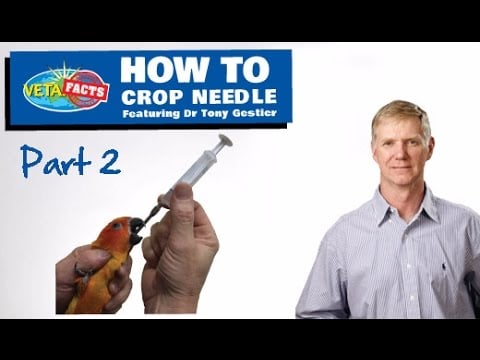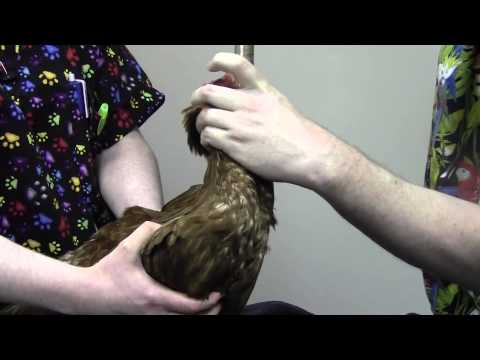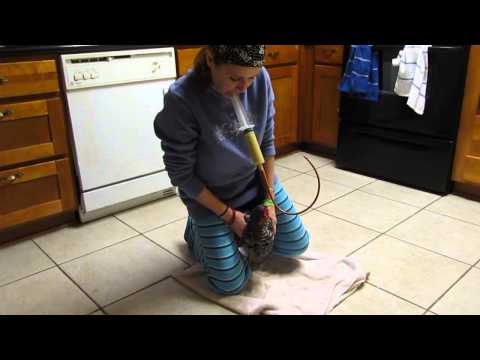I watched the videos. I dont see anything that would possibly indicate a respiratory disease. I recommend that you take a fecal sample to a vet and have them take a look at it under a microscope. They'll be able to tell you if she is overloaded with cocci or worm oocysts, maybe ecoli overload. Shouldnt cost much.
Navigation
Install the app
How to install the app on iOS
Follow along with the video below to see how to install our site as a web app on your home screen.
Note: This feature may not be available in some browsers.
More options
You are using an out of date browser. It may not display this or other websites correctly.
You should upgrade or use an alternative browser.
You should upgrade or use an alternative browser.
seems depressed. opening beak a bit occasionally to breathe. acting slow and lazy. non sociable.
- Thread starter Lynyrd66
- Start date
No doubt, she is *very* sick and I agree with Dawg, it doesn't look like the type of breathing they do when they have a respiratory infection, but I haven't seen that many with respiratory infections, so I might be wrong. The breathing, stumbling, green poop, etc could be related to something like Marek's or another disease, but I have to be honest and say that when mine start breathing like that it usually means that death is soon to follow, usually 24-48 hours.
Any chance you can take her to a vet? How about tube feeding? I really hope I'm wrong and she gets better.
-Kathy
Any chance you can take her to a vet? How about tube feeding? I really hope I'm wrong and she gets better.
-Kathy
- Thread starter
- #13
- Oct 20, 2013
- 49
- 1
- 64
tonight she started shaking her head. Kind of like when she gets yogurt on her beak and she's trying to shake it off. Also, she is now refusing to drink water. I am getting nervous. I plan to call a vet in the am if she is still alive, I am getting nervous. I thought I saw a work in her poop so now I am giving her wazine. She is still able to stand and stands up every time she has to poop.
Fingers crossed for you!
-Kathy
-Kathy
Open-mouth breathing can be a sign of pain.
I have little experience with egg bound hens, but maybe this is truly a possibility with her?
She does really look undernourished & weak. Green poops are a sign of not eating enough. If she doesn't eat steadily enough & you decide you need to get some extra nutrition in her, there are instructions on how to give meds or soft food down the throat on the "Baytril for Birds" page on the website linked in my sig. They really aren't hard to give that way. It is much easier & safer than putting things just inside the bird's beak/mouth.
There are also some ideas of nutritious foods on the "Fungal Infections" page. Egg is a really good thing to be giving her--especially the yolk.
I don't know if she needs medication right now. Maybe not or maybe... Many meds don't taste very good & can cause a bird to eat & drink less, though you can give meds down the throat or by injection to help limit problems with that.
It seems like you are giving her some really loving care. I hope she can get better.
 It's encouraging that she's eating & drinking some.
It's encouraging that she's eating & drinking some.
I have little experience with egg bound hens, but maybe this is truly a possibility with her?
She does really look undernourished & weak. Green poops are a sign of not eating enough. If she doesn't eat steadily enough & you decide you need to get some extra nutrition in her, there are instructions on how to give meds or soft food down the throat on the "Baytril for Birds" page on the website linked in my sig. They really aren't hard to give that way. It is much easier & safer than putting things just inside the bird's beak/mouth.
There are also some ideas of nutritious foods on the "Fungal Infections" page. Egg is a really good thing to be giving her--especially the yolk.
I don't know if she needs medication right now. Maybe not or maybe... Many meds don't taste very good & can cause a bird to eat & drink less, though you can give meds down the throat or by injection to help limit problems with that.
It seems like you are giving her some really loving care. I hope she can get better.

my guess would be Marek's if her history points to that possibility (contact with other chickens) I've had Marek's birds look happy, pretend to eat or eat, waste away, (big symptom), I've had slow gasping amoungst normal breaths. I have a good link below "the big FAQ" by Nambroth, which covers most, close to all of the symptoms. I hope it's not.
- Thread starter
- #17
- Oct 20, 2013
- 49
- 1
- 64
I woke up this am and she was sitting in the back of the kennel and alert. Luckily I am not working today and can keep an eye on her and get her to the Vet. I found a chicken vet that will see yer at 11. She is still very listless. She is still able to stand and to walk, but is weak and if I pushed her she would fall over. Her eyes are open most of the time, but she is sleepy and weak. Not like a cocci bird though. She is not really holding her wings tight and her tail is starting to relax. There was some more of the green and white poop in the kennel and I grabbed that for the vet. I Heated up the chicken food mash that was left over from last night and added some electrolyte water and she was eating it again today. Her poop is mostly water at this time. I scrambled her an egg with half of a banana because she really liked that on Friday, but she wasn't interested in it today. I leave for the vet in about an hour and a half. Her feet feel cold.
Have the vet show you how to tube feed, it's really quite easy.
Crop feeding videos
These are using a crop needle, not a plastic tube.



This one uses a tube like I use

These are using a crop needle, not a plastic tube.



This one uses a tube like I use

Everyone is right, there are so many things it could be and it's really hard to know how to treat if you don't know what you're dealing with. From experience I know that once they get to a certain point weight or hydration wise, there is no turning back.
From:http://avianmedicine.net/content/uploads/2013/03/07_emergency_and_critical_care.pdf
From:http://avianmedicine.net/content/uploads/2013/03/07_emergency_and_critical_care.pdf
Supportive Care
SICK-BIRD ENCLOSURES
Sick birds are often hypothermic and should be placed in heated (brooder-type) enclosures
b (Fig 7.7) in a quiet environment (see Chapter 1, Clinical Practice). A temperature of 85° F (29° C) with 70% humidity is desirable for most sick birds. If brooders are not equipped with a humidity source, placing a small dish of water in the enclosure will often supply adequate humidity. A moist towel that is heated and placed on the bottom of a cage or incubator rapidly humidifies the environment, as indicated by the fogging of the acrylic cage front.
SICK-BIRD ENCLOSURES
Sick birds are often hypothermic and should be placed in heated (brooder-type) enclosures
b (Fig 7.7) in a quiet environment (see Chapter 1, Clinical Practice). A temperature of 85° F (29° C) with 70% humidity is desirable for most sick birds. If brooders are not equipped with a humidity source, placing a small dish of water in the enclosure will often supply adequate humidity. A moist towel that is heated and placed on the bottom of a cage or incubator rapidly humidifies the environment, as indicated by the fogging of the acrylic cage front.
FLUID THERAPY
Oral Administration
Oral administration is the ideal method of giving fluids. This method is more commonly used in mildly dehydrated birds or in conjunction with subcutaneous (SC) or intravenous (IV) therapy. Oral rehydration (30 ml/kg PO q 6-8 h) also may be used in larger birds (eg, waterfowl) that are difficult to restrain for parenteral fluid therapy.
Oral Administration
Oral administration is the ideal method of giving fluids. This method is more commonly used in mildly dehydrated birds or in conjunction with subcutaneous (SC) or intravenous (IV) therapy. Oral rehydration (30 ml/kg PO q 6-8 h) also may be used in larger birds (eg, waterfowl) that are difficult to restrain for parenteral fluid therapy.
ORAL NUTRITIONAL SUPPLEMENTS
Below are listed some of the oral nutritional supplements that can be gavage-fed to debilitated birds. Various hand-feeding formulas are on the market and, as a whole, are far superior to the homemade formulas used decades ago that contained monkey biscuits, peanut butter and ground seeds. Commercially available hand-feeding formulas for baby birds are often utilized in the treatment of sick and debilitated adult birds. The quantity that can be fed at one time to a sick bird is greatly reduced from that of baby birds. On the average, a baby parrot can accommodate 10% of its body weight per feeding due to the elasticity of the crop and its rapid emptying. Adult birds have a greatly decreased crop capacity, averaging 3% of their body weight. Additionally,sick birds are less tolerant of food in the crop and care must be taken to avoid regurgitation and/or aspiration. A sick or debilitated bird should always have its hydration corrected prior to attempting to initiate oral gavage-feeding.
Below are listed some of the oral nutritional supplements that can be gavage-fed to debilitated birds. Various hand-feeding formulas are on the market and, as a whole, are far superior to the homemade formulas used decades ago that contained monkey biscuits, peanut butter and ground seeds. Commercially available hand-feeding formulas for baby birds are often utilized in the treatment of sick and debilitated adult birds. The quantity that can be fed at one time to a sick bird is greatly reduced from that of baby birds. On the average, a baby parrot can accommodate 10% of its body weight per feeding due to the elasticity of the crop and its rapid emptying. Adult birds have a greatly decreased crop capacity, averaging 3% of their body weight. Additionally,sick birds are less tolerant of food in the crop and care must be taken to avoid regurgitation and/or aspiration. A sick or debilitated bird should always have its hydration corrected prior to attempting to initiate oral gavage-feeding.
New posts New threads Active threads
-
Latest posts
-
-
-
-
Checking-In On Peeps - Post Here To Say Hello!
- Latest: Smalls Chicks
-
-
Latest threads
-
-
-
-
-
Coyote attack, broken neck? Help.
- Started by Dogville
- Replies: 1
-
-
Threads with more replies in the last 15 days
-
-
-
Is frostbite avoidable without electric heating? Should I add heat to my coop?
- Started by ChickenShepherd_6116
- Replies: 157
-
-
-
×

